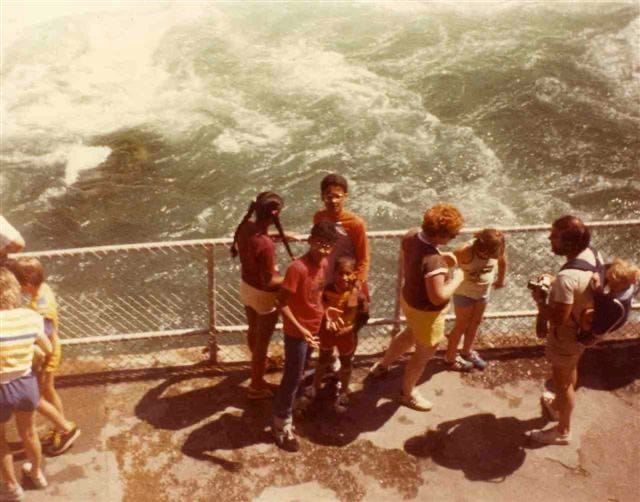When I was eleven years old my father decided to take us all to Maine for a week-long summer vacation.
Why Maine? No idea whatsoever. We knew no one northward of Providence, where some of my tíos lived. I suspect my father had heard a coworker at Reynolds Aluminum bragging about their summers Downeast and decided to check the state out for himself. Dude was random like that and for all his faults you couldn’t say he wasn’t curious .
All our vacays up to that point had been typical Jersey daytrips to Sandy Hook, Long Branch and, if our father was feeling especially ambitious, Spruce Run. Nothing complicated, all very Dominican immigrant. Maine, however, was to be a real multi-day American vacation in a very American place. The kind of holiday I only read about, or saw on TV.
At an abstract level, I was hype. Either because I read too much or had already traveled halfway across the continent during emigration, I was the sort of kid who studied maps like other people studied money, who longed to see the world, a world that was indubitably better than Landfill, NJ.
So yes, I was hype, but I was also not hype. Places like Sandy Hook with lots of folks of color, I had no problems with — but Maine was white America — and white America made me nervous. Despite being in-country for five years my family was still very wet; we all had accents and my mother couldn’t speak a word of English (and never would). We stuck out like only a brown immigrant family in Caucasia could stick out. And people let us know we stuck out, too. Always seemed that every run-in I had with the larger America beyond my neighborhood ended with racism rubbed in my face.
And then there was the problem of my father. My pops was a real piece of work: an old school ex-military pro-dictatorship disciplinarian who should never have been let anywhere near fatherhood. Dude would have given the Great Santini a run for his money. Funny thing: he was very affable in public, always kind to strangers, all smiles, but rageful and volatile when it was just the family. He was the definition of candil de la calle, sombra de su casa.
Of all us kids I was the one who bothered him the most, who he could not stop bashing up or cursing out. I guess I was too weak, too clumsy, too weird (I carried my




